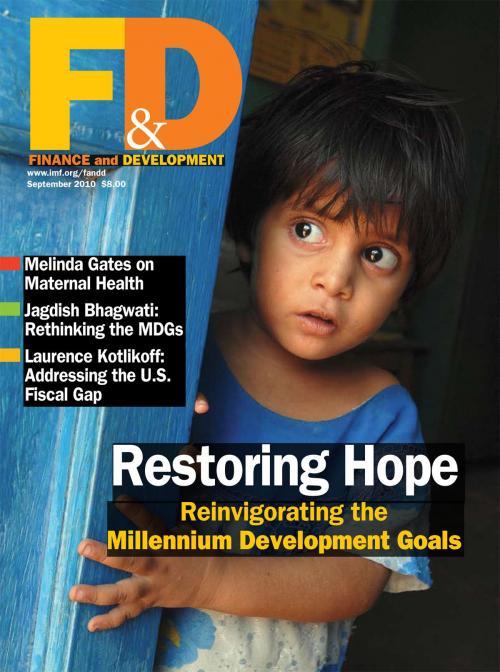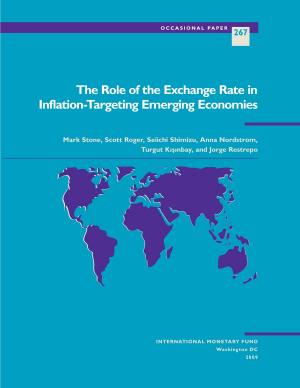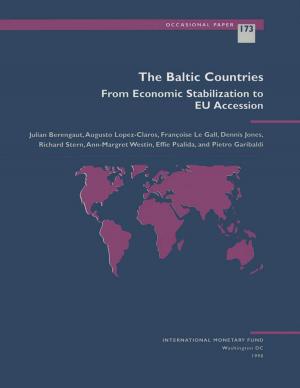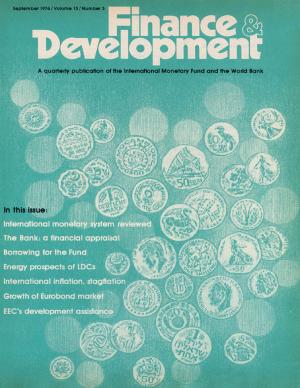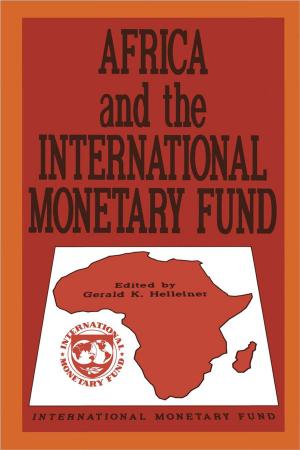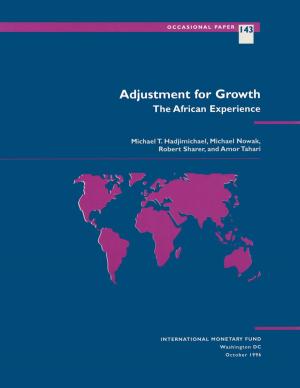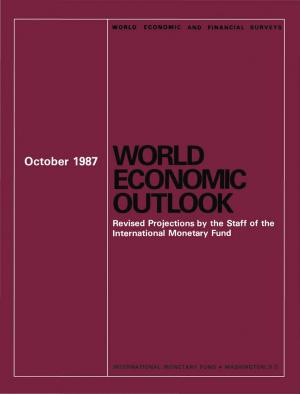Finance & Development, Septemer 2010
Business & Finance, Economics, International Economics, Finance & Investing, Finance| Author: | International Monetary Fund. External Relations Dept. | ISBN: | 9781455253586 |
| Publisher: | INTERNATIONAL MONETARY FUND | Publication: | September 1, 2010 |
| Imprint: | INTERNATIONAL MONETARY FUND | Language: | English |
| Author: | International Monetary Fund. External Relations Dept. |
| ISBN: | 9781455253586 |
| Publisher: | INTERNATIONAL MONETARY FUND |
| Publication: | September 1, 2010 |
| Imprint: | INTERNATIONAL MONETARY FUND |
| Language: | English |
'Restoring Hope: Reinvigorating the Millennium Development Goals' assesses how the world is doing in meeting the MDGs--international development targets that all UN member countries and many international organizations have set for 2015. Our lead article, 'Regaining Momentum,' says that while several of the MDGs are within reach, the global economic crisis has set back progress toward a number of the targets, especially those related to health. Developing countries will need the support of advanced economies in to get back on track. Economist Jagdish Bhagwati calls into question the premise of the MDGs and argues that they should be rethought. Philanthropist Melinda Gates gives us the good news that maternal health has been improving, though we are not yet on track to meet the MDG target on maternal mortality. Picture This takes a look at child mortality rates and finds a more sobering picture. In related stories, economists Arvind Panagariya and Rodney Ramcharan have different views on how important it is to fight inequality. This issue also examines the deterioration of fiscal positions in advanced economies--as a result of both the global financial crisis and the long-run health and pension costs of an aging population. 'How Grim a Fiscal Crisis?' argues that consolidation in advanced economies should focus on spending cuts, given the already high tax burdens in many countries. In 'A Hidden Fiscal Crisis,' economist Laurence J. Kotlikoff examines the serious budget issues in the United States. We also look at the expensive needs of a rapidly aging population in France, and steps China is taking to improve pensions and health care. People in Economics profiles Maria Ramos, the academic-turned-Treasury mandarin who had a central role in stabilizing the budget in South Africa. And the 'Back to Basics' feature discusses unemployment.
'Restoring Hope: Reinvigorating the Millennium Development Goals' assesses how the world is doing in meeting the MDGs--international development targets that all UN member countries and many international organizations have set for 2015. Our lead article, 'Regaining Momentum,' says that while several of the MDGs are within reach, the global economic crisis has set back progress toward a number of the targets, especially those related to health. Developing countries will need the support of advanced economies in to get back on track. Economist Jagdish Bhagwati calls into question the premise of the MDGs and argues that they should be rethought. Philanthropist Melinda Gates gives us the good news that maternal health has been improving, though we are not yet on track to meet the MDG target on maternal mortality. Picture This takes a look at child mortality rates and finds a more sobering picture. In related stories, economists Arvind Panagariya and Rodney Ramcharan have different views on how important it is to fight inequality. This issue also examines the deterioration of fiscal positions in advanced economies--as a result of both the global financial crisis and the long-run health and pension costs of an aging population. 'How Grim a Fiscal Crisis?' argues that consolidation in advanced economies should focus on spending cuts, given the already high tax burdens in many countries. In 'A Hidden Fiscal Crisis,' economist Laurence J. Kotlikoff examines the serious budget issues in the United States. We also look at the expensive needs of a rapidly aging population in France, and steps China is taking to improve pensions and health care. People in Economics profiles Maria Ramos, the academic-turned-Treasury mandarin who had a central role in stabilizing the budget in South Africa. And the 'Back to Basics' feature discusses unemployment.
